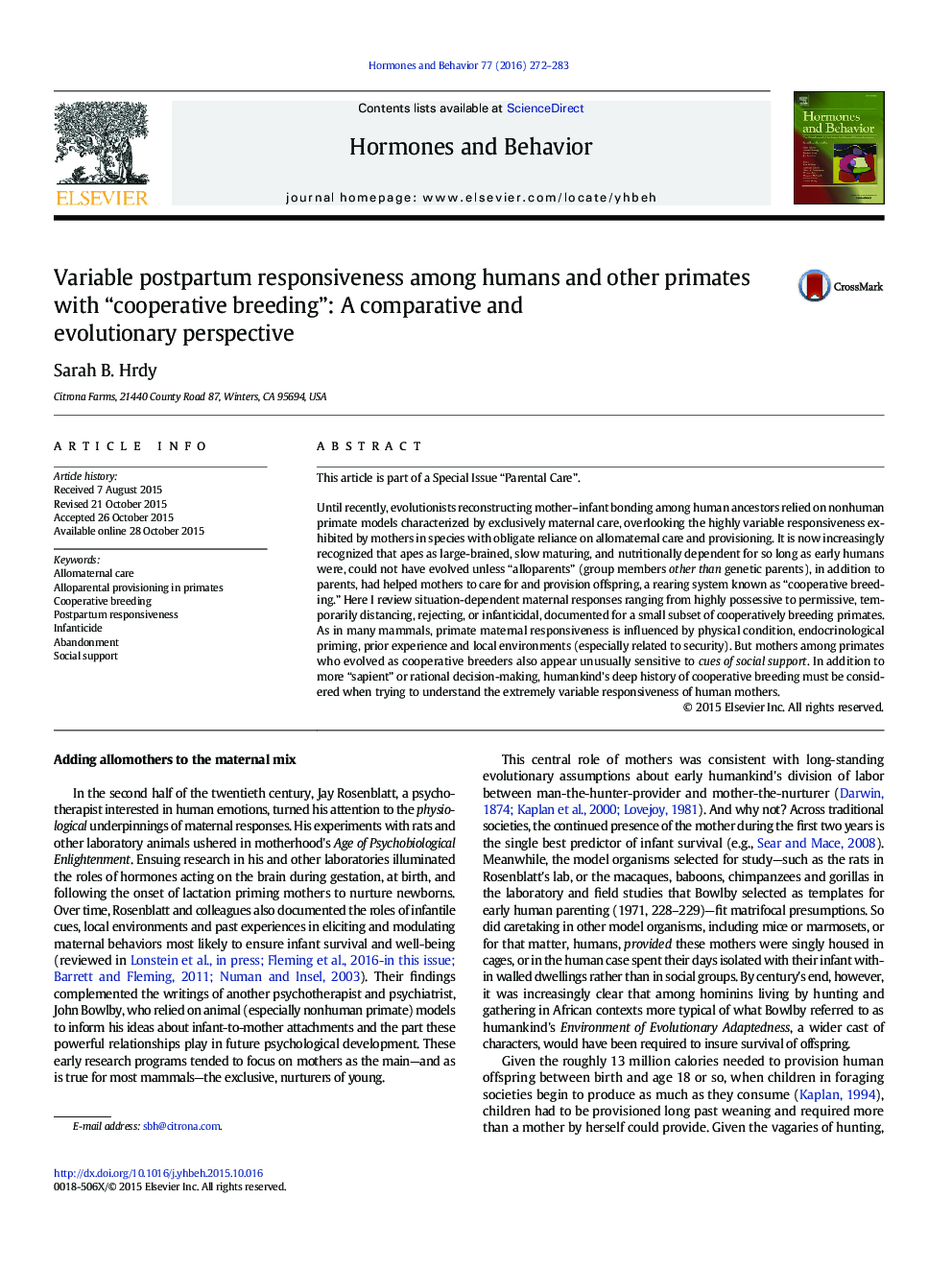| کد مقاله | کد نشریه | سال انتشار | مقاله انگلیسی | نسخه تمام متن |
|---|---|---|---|---|
| 323075 | 540480 | 2016 | 12 صفحه PDF | دانلود رایگان |
• Care and provisioning from alloparents as well as parents was critical for offspring survival in the line of apes leading to the genus Homo.
• Human parenting differs from their phylogenetically closest primate relations and more nearly resembles care among physiologically and cognitively very different New World monkeys.
• As among other cooperatively breeding primates, human postpartum maternal responsiveness is unusually sensitive to cues of social support.
• Postpartum delays in responsiveness may have facilitated the emergence of peculiarly discriminative maternal solicitude in Homo sapiens.
This article is part of a Special Issue “Parental Care”.Until recently, evolutionists reconstructing mother–infant bonding among human ancestors relied on nonhuman primate models characterized by exclusively maternal care, overlooking the highly variable responsiveness exhibited by mothers in species with obligate reliance on allomaternal care and provisioning. It is now increasingly recognized that apes as large-brained, slow maturing, and nutritionally dependent for so long as early humans were, could not have evolved unless “alloparents” (group members other than genetic parents), in addition to parents, had helped mothers to care for and provision offspring, a rearing system known as “cooperative breeding.” Here I review situation-dependent maternal responses ranging from highly possessive to permissive, temporarily distancing, rejecting, or infanticidal, documented for a small subset of cooperatively breeding primates. As in many mammals, primate maternal responsiveness is influenced by physical condition, endocrinological priming, prior experience and local environments (especially related to security). But mothers among primates who evolved as cooperative breeders also appear unusually sensitive to cues of social support. In addition to more “sapient” or rational decision-making, humankind's deep history of cooperative breeding must be considered when trying to understand the extremely variable responsiveness of human mothers.
Journal: Hormones and Behavior - Volume 77, January 2016, Pages 272–283
